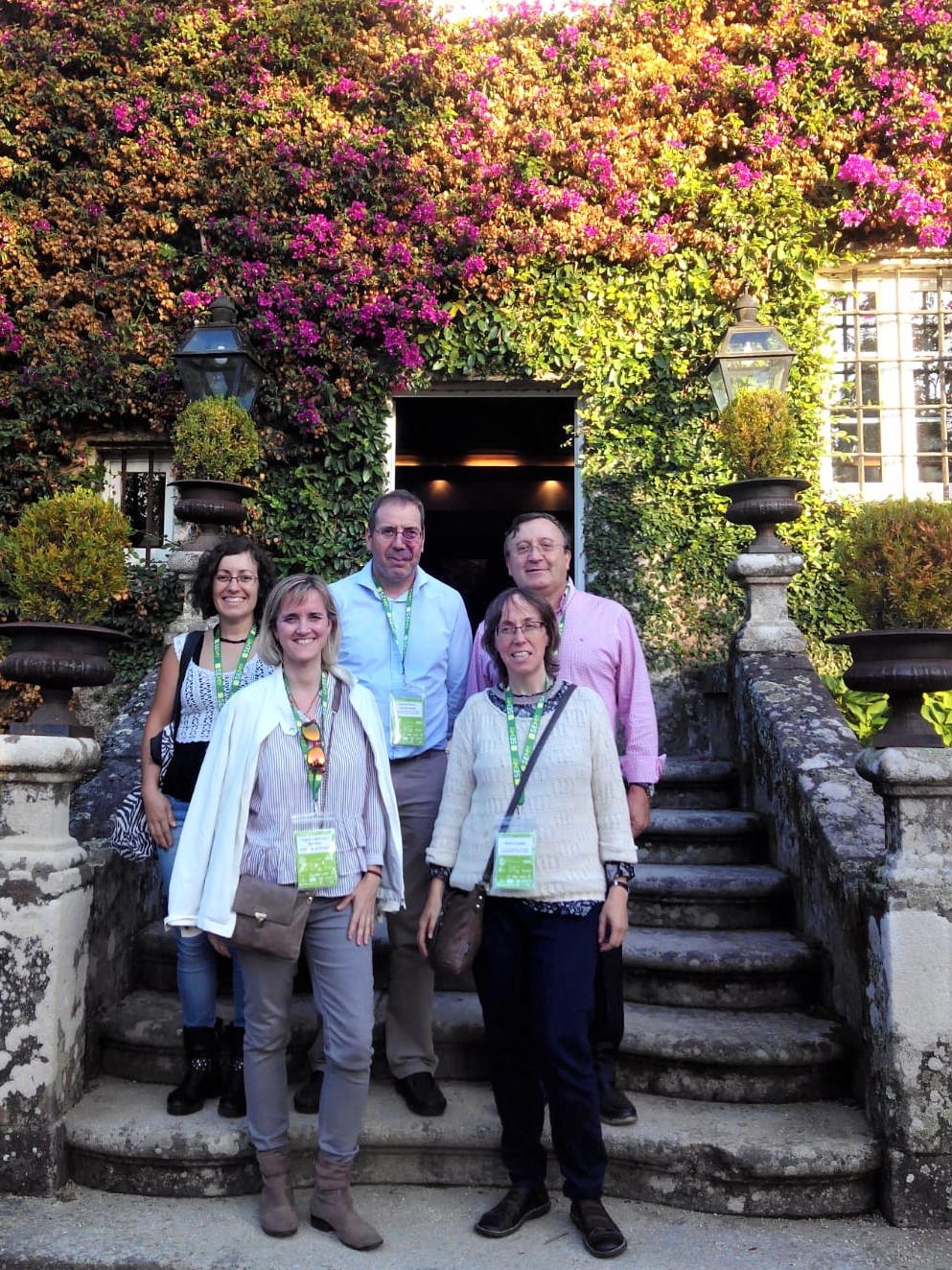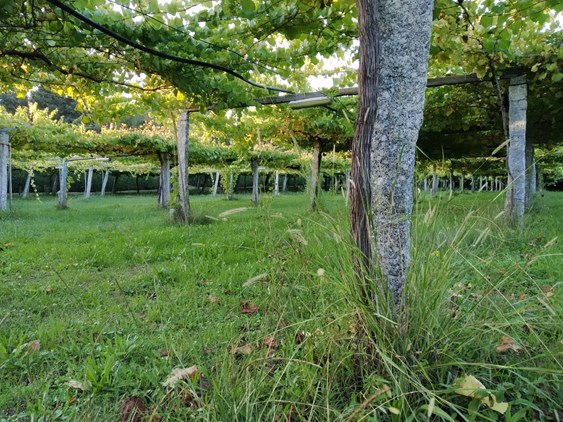Investigadores de PROVESOS han participado en el Congreso de la SEMh / PROVESOS researchers have participated in the SEMh Congress

Investigadores de la Unidad de Sanidad Vegetal del Centro de Investigación y Tecnología Agroalimentaria de Aragón (CITA) asistieron del 8 al 10 de octubre al XVII Congreso de la SEMh (Sociedad Española de Malherbología) que se celebró en Vigo. Los investigadores del CITA participaron en 4 comunicaciones orales y 3 pósteres. Los investigadores participantes son miembros de PROVESOS. Los trabajos presentados pueden pedirse en ; https://www.cita-aragon.es/es/biblioteca. Researchers from the Plant Protection Unit of the Aragon Agrifood Research and Technology Center (CITA) attended from the 8th to the 10th of October to the XVII Congress of the SEMh (Spanish Weed Science Society) that was held in Vigo. CITA researchers participated in 4 oral communications and 3 posters. The participating researchers are members of PROVESOS. The submitted works can be requested at; https://www.cita-aragon.es/es/biblioteca.
Fuente: CITA. PROVESOS

El Dr. Gabriel Pardo presentó en la sesión dedicada al manejo integrado de malas hierbas, la comunicación titulada “¿Reduce la rotación en el cultivo del arroz las infestaciones de Echinochloa spp?. Resultados de prospecciones en Aragón”, la Dra. Ana Isabel Marí expuso su comunicación “Evaluación económica de acolchados biodegradables plásticos y papeles utilizados en el cultivo de pimiento (Capsicum annuum L.)” en la sesión de Estrategias eco-innovadoras, mientras que la Dra. Alicia Cirujeda participó en la misma sesión con una comunicación titulada “Presencia de la flora arvense en márgenes de campos recién instalados en una zona semiárida de Zaragoza”. Por último, la profesora de la Universidad de Zaragoza Dra. Yolanda Martínez presentó, en la sesión sobre Biología y manejo de especies invasoras, la comunicación “Modelo bioeconómico para el control óptimo de la invasora Zea mays ssp. mexicana ad int. en España”. De este último trabajo son coautores los tres investigadores del CITA. En cuanto a las comunicaciones póster, Gabriel Pardo presentó “Echinochloa spp. en campos de arroz de Aragón y Navarra: Susceptibilidad actual a distintos tratamientos herbicidas en función de la especie y mutación”, Alicia Cirujeda los trabajos titulados “Acolchado de aplicación líquida o hidroacolchados: primeros resultados sobre el control de malas hierbas en melocotonero”, y para finalizar, el titulado “Efecto de la longitud de las raíces de Solanum elaegnifolium Cav. en su brotación”.
Dr. Gabriel Pardo presented at the session dedicated to the integrated management of weeds, the communication entitled “Does Echinochloa spp infestation reduce rotation in rice crop? Results of surveys in Aragon ”, Dr. Ana Isabel Marí presented her communication“ Economic evaluation of biodegradable plastic and paper mulching used in the pepper(Capsicum annuum L.) crop ” in the session of Eco-innovative Strategies, while Alicia Cirujeda participated in the same session with a communication entitled “Presence of weed flora on newly installed fields in a semi-arid area of Zaragoza (Spain)”. Finally, the professor of the University of Zaragoza Dr. Yolanda Martínez presented, in the session on Biology and management of invasive species, the communication “Bioeconomic model for optimal control of the invader Teosinte (Zea mays ssp. mexicana ad int.) in Spain". The three researchers of the CITA are co-authors of this last work. Regarding the poster papers, Dr. Pardo presented “Echinochloa spp. in rice fields of Aragon and Navarra: current susceptibility to different herbicide treatments depending on the species and mutation ”, Dr. Cirujeda presented the work “Mulching of liquid application or hydro-mulching: first results on the control of weeds in peach trees ”, and also the poster entitled “Effect of the root length of Solanum elaegnifolium Cav. in its sprouting ”.